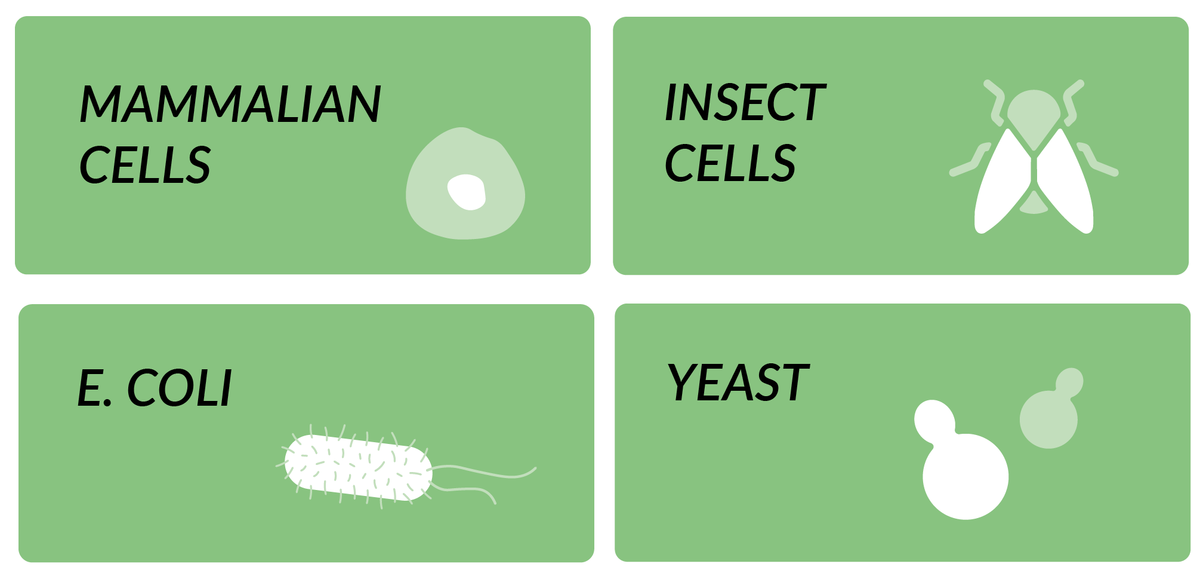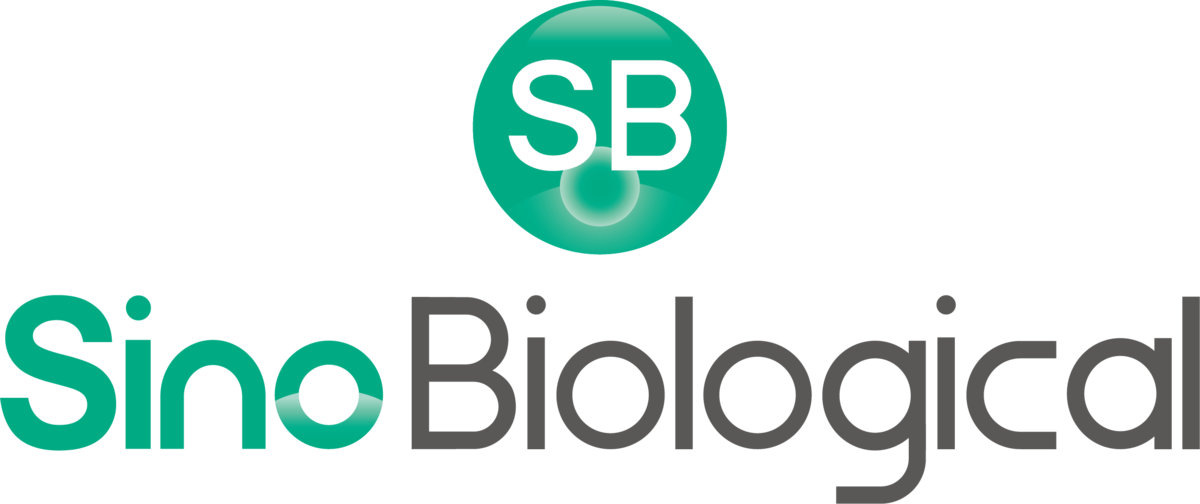Recombinant Proteins: Applications, Expression Systems, and Reasons for Outsourcing Production
Recombinant proteins are used for a broad range of research applications and have utility for diagnosing and treating disease. Although they can be made in-house, out-sourcing recombinant protein production offers several advantages.
What are recombinant proteins?
Recombinant proteins are derived from an engineered DNA sequence encoding the target of interest. This is introduced into an expression host, which is subsequently grown in culture to increase production. The resultant protein is then purified for use in downstream applications. Critically, because the protein sequence is known, end users are assured of a consistent, long-term supply. Recombinant production methods also enable manipulation of the expressed protein, such as through the inclusion of a tag.

How are recombinant proteins used?
The number of potential applications for recombinant proteins is limitless. Within a research setting, recombinant proteins can act as qualitative controls for Western blotting or quantitative controls for ELISA; function as essential components of cellular growth media; and can be used for stimulating cell signaling pathways or triggering cellular differentiation. Recombinant proteins also form the basis of scaffolds for growing 3-dimensional (3D) cell cultures such as spheroids and organoids. Additionally, recombinant proteins displaying tags such as fluorophores or enzymes are widely employed as immunoassay reporters, while those featuring smaller moieties such as His- or Myc-tags provide further opportunities for detection or purification. Diagnostic applications of recombinant proteins mainly comprise their utility as controls in tests such as lateral flow immunoassay, while therapeutic applications include the use of recombinant proteins to replace deficient or abnormal proteins, enable targeted drug delivery, and as vaccines. Where recombinant proteins are intended for diagnostic or therapeutic purposes, rather than being designated for research use only (RUO), their production is governed by strict regulatory guidelines.
What are the main recombinant protein expression systems?
Recombinant proteins are produced in a variety of expression hosts, each with distinct features and benefits. Bacterial expression hosts such as
E. coli are easy-to-use and inexpensive and are especially well-suited to prokaryotic protein expression. However, they are unable to add post-translational modifications (PTMs), meaning protein products do not fully represent the native state.
Yeasts like S. cerevisiae are likewise simple and cost-effective; they also offer the advantage of secreting very few endogenous proteins, which facilitates the purification process. Yet, yeasts exhibit a slower growth rate than bacterial hosts and can be prone to causing protein hyperglycosylation.
Insect hosts such as Sf9 support the expression of more complex proteins compared to either bacteria or yeast, but they are limited by a time-consuming workflow involving baculovirus production.
Mammalian expression systems like Chinese hamster ovary (CHO) cells or human embryonic kidney cells (HEK293) are capable of producing multiple PTMs and offer tighter control over protein expression through the use of inducible promoters. They are also suitable for stable cell line generation, making them a good option for long-term projects. For these reasons, mammalian expression systems are widely used for producing diagnostic and therapeutic proteins.

Which expression system should I choose?
The choice of expression system will mainly be dictated by how the recombinant protein is to be used. Where it is not essential for the protein to closely resemble the native state, in terms of either structure or function, a bacterial- or yeast-expressed product may be sufficient. However, where an active protein is required, the more complex the system, the better; in this situation, mammalian-expressed proteins are usually a preferred choice.
Why should I consider out-sourcing recombinant protein production?
Although it is possible to synthesize recombinant proteins in-house, researchers can save considerable time and money by acquiring recombinant proteins from an external source. Additionally, a provider demonstrating a proven track record in recombinant protein production may offer the necessary expertise to support requests for protein engineering or scale-up. Further advantages of outsourcing recombinant protein production include greater consistency and reproducibility; the reassurance that expression has taken place in a production environment subject to stringent quality control; and the potential for stable cell line generation if required.
LubioScience represents some of the most trusted brands in research and our partners include several globally-recognized providers of recombinant protein products. Contact us today to learn how we can support the needs of your project.
Selected Suppliers for recombinant proteins:

The Sino Biological R&D team has many years of experience in recombinant protein research and development. Over the years, our team has generated more than 6'000 recombinant proteins. Exhibiting properties of high purity and validated bioactivity, Sino Biological recombinant proteins can support your scientific research.

Proteintech's HumanKine expression system ensures that proteins have native conformation and post-translational modifications to optimize biological activity. No expression tags, xeno-free…just high quality proteins.In order to facilitate a smooth transition from preclinical to clinical, Humankine® offers a wide range of RUO and cGMP grade recombinant proteins which are exclusively expressed and purified from HEK293 human cells.

SignalChem has established itself as a leader in the development of innovative cell signaling products to meet the needs of scientists in basic research and drug discovery. SignalChem offers more than 5'000 recombinant proteins, antibodies and reagents covering extra- and intracellular signaling, kinase networks and cellular pathways. Learn more.

